The book Jesus and John Wayne by Kristin Kobes Du Mez explores the synthesis of faith and culture, examining how evangelical identity evolved through symbols of strength and authority, blending religious ideals with American masculinity, and critiquing the intersection of religion, politics, and power in modern evangelicalism.
1.1 Overview of the Book
Jesus and John Wayne by Kristin Kobes Du Mez is a thought-provoking analysis of white evangelicalism in the U.S., exploring its cultural and political evolution. The book examines how evangelical identity has been shaped by ideals of masculinity, authority, and power, often symbolized by figures like John Wayne. Du Mez argues that this blending of faith and culture has led to a distortion of Christian values, emphasizing strength and dominance over compassion and humility. She traces this trajectory from historical roots to modern-day implications, revealing how evangelicals have often prioritized political power and cultural identity over religious principles. The book sparks critical reflection on the intersection of religion, gender, and politics in America.
1;2 Author Kristin Kobes Du Mez and Her Thesis
Kristin Kobes Du Mez, a history professor, explores the fusion of faith and culture in Jesus and John Wayne. Her thesis reveals how white evangelicals redefined Christianity, blending it with American ideals of masculinity and power. Du Mez argues that this cultural shift has led to a distortion of Christian values, prioritizing strength and authority over humility and compassion. She examines how figures like John Wayne symbolize this evolution, influencing evangelical identity and politics. The book critiques the intersection of religion and nationalism, offering a critical perspective on modern evangelicalism’s trajectory and its societal impact.
1.3 Historical Context of Evangelicalism in the U.S.
Evangelicalism in the U.S. has deep roots in the 20th century, shaped by cultural and political shifts. The movement gained momentum post-WWII, blending religious ideals with American identity. Kristin Kobes Du Mez highlights how evangelicals adapted to societal changes, embracing a masculine, authoritarian ethos. This evolution was influenced by Cold War anxieties, the rise of Christian nationalism, and the convergence of faith with American patriotism. The historical context reveals a transformation from humble beginnings to a politically powerful force, reshaping Christianity into a cultural movement deeply intertwined with American values and power structures, ultimately influencing modern evangelical identity and its role in national discourse.
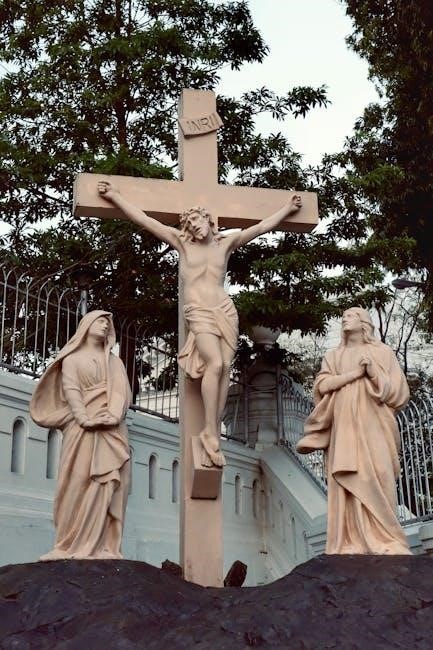
The Historical Context of Evangelicalism
Evangelicalism in the U.S. emerged from 19th-century revivals, emphasizing personal conversion and biblical authority. It evolved through societal changes, blending faith with cultural and political identities over time.
2.1 The Evolution of Evangelical Identity
Evangelical identity has evolved significantly over time, shaped by cultural, social, and theological shifts. Emerging from the 18th-century Great Awakenings, evangelicalism emphasized personal conversion and biblical authority. By the 19th and 20th centuries, it became increasingly intertwined with American culture, particularly in the Midwest and South. The movement navigated tensions between isolationism and cultural engagement, balancing personal piety with societal influence. In the modern era, especially post-World War II, evangelicalism aligned closely with conservative politics, culminating in the rise of the Religious Right. This transformation reflected both the enduring appeal of evangelical theology and its adaptation to changing societal contexts, fostering debates over its role in public life and identity.
2.2 The Role of Masculinity in Evangelical Culture
Masculinity has played a central role in shaping evangelical culture, often emphasizing traits like strength, authority, and protection. This idealized form of masculinity, deeply rooted in American culture, has been influential in evangelical communities, particularly through figures like John Wayne, who symbolized a rugged, individualistic, and moralistic worldview. Evangelical leaders often framed masculinity as a divine mandate, reinforcing traditional gender roles and advocating for male leadership in both family and society. This cultural narrative has sometimes led to the militarization of faith, with men portrayed as “warriors for Christ.” The fusion of religious and cultural ideals of masculinity has significantly shaped evangelical identity, influencing everything from family dynamics to political engagement.
2.3 The Intersection of Religion and Politics
The intersection of religion and politics has been a defining feature of evangelicalism in America, as explored in Jesus and John Wayne. Evangelicals have long sought to merge their religious beliefs with political ideologies, creating a powerful cultural and electoral force. The rise of the Religious Right in the late 20th century exemplifies this trend, as evangelicals aligned themselves with conservative political agendas. This fusion has been driven by a desire to restore traditional values and moral order, often framed as a divine mandate. The book argues that this blending of faith and politics has profoundly shaped American society, influencing policies on issues like abortion, gender roles, and nationalism. This intersection has also fueled cultural divisions, making evangelicalism a contentious and deeply political identity;

The Cultural Significance of John Wayne
John Wayne embodies American masculinity, individualism, and patriotism, becoming a cultural icon symbolizing strength and self-reliance. His persona resonated deeply with evangelical values, blending faith and nationalism.
3.1 John Wayne as a Symbol of American Masculinity
John Wayne became an iconic figure representing American masculinity, embodying traits like courage, independence, and authority. His on-screen persona, often portrayed as a rugged, self-reliant hero, resonated with ideals of strength and moral clarity. Wayne’s characters, frequently set in Western frontier contexts, symbolized a bygone era of American values, appealing to a notion of moral certitude. His image transcended film, becoming a cultural symbol of patriotism and traditional masculinity. This persona aligned with evangelical ideals of leadership and moral authority, making him a relatable figure for many conservatives. Wayne’s enduring legacy reflects a blend of cinematic lore and cultural mythology, cementing his place as a symbol of American identity.
3.2 The “John Wayne Era” and Its Impact on Evangelical Values
The “John Wayne Era” symbolized a cultural shift that deeply influenced evangelical values. Wayne’s films often depicted rugged individualism, patriotism, and moral clarity, resonating with evangelicals’ emphasis on strength, family, and authority. His characters embodied a strong, protective masculinity, aligning with evangelical ideals of leadership and traditional gender roles. The era reinforced notions of moral certitude and a clear divide between right and wrong, which appealed to evangelicals seeking cultural and spiritual stability amidst societal change. This cultural alignment helped shape evangelical identity, blending religious faith with American patriotism and conservative values. The “John Wayne Era” thus became a cultural touchstone for evangelicals, reflecting their aspirations for a morally grounded society.
3.3 The Ideal of the “Christian Warrior”
The “Christian Warrior” ideal represents a fusion of religious devotion and martial values, emphasizing strength, courage, and vigilance. This concept is deeply rooted in interpretations of Jesus as a powerful leader who stands against injustice, rather than solely as a peaceful figure. John Wayne’s characters embody this ideal, portraying resilience and moral uprightness. Historically, this imagery gains prominence during times of social change or conflict, inspiring believers to take a stand. The “Christian Warrior” symbolizes the blend of faith and strength, resonating with evangelicals who seek to uphold their values in challenging environments. Its cultural significance lies in its ability to motivate and unite communities through shared ideals of righteousness and perseverance.
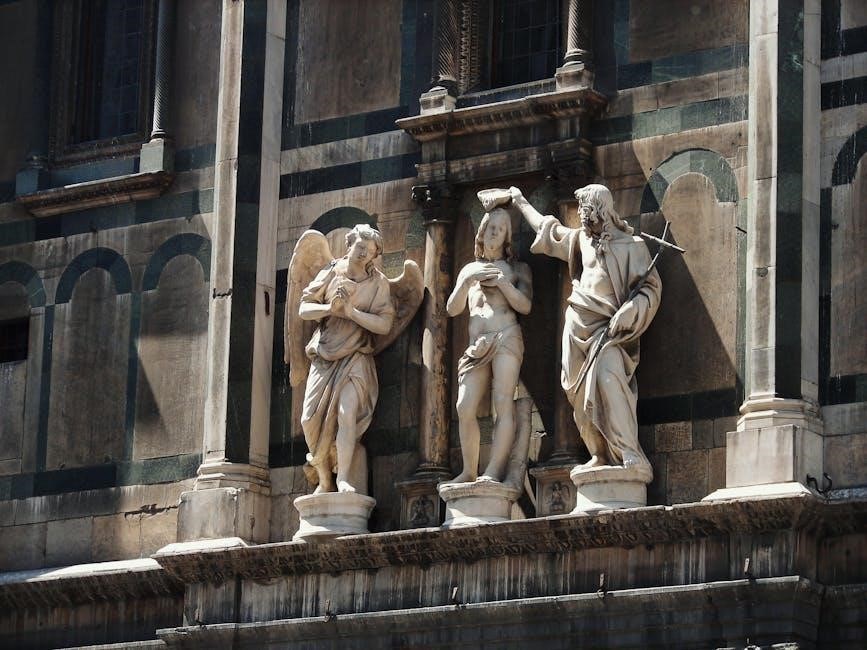
The Portrayal of Jesus in Evangelical Culture
In evangelical culture, Jesus is often depicted as a strong, authoritative figure, blending compassion with moral leadership, deeply resonating with community values and ideals of righteousness.

4.1 Jesus as a Model of Strength and Authority
In evangelical culture, Jesus is frequently portrayed as a figure of unwavering strength and moral authority, embodying ideals of leadership and courage. This depiction often aligns with traditional masculine values, emphasizing Jesus’ role as a decisive leader who commands respect and inspires loyalty. His teachings are framed as clear, unyielding truths, reflecting a no-compromise approach to righteousness. This image of Jesus resonates deeply with evangelicals, who often seek a strong moral compass in a chaotic world. By emphasizing His authority, evangelicals reinforce a vision of Christianity as a force of power and redemption, aligning with cultural ideals of heroism and unshakeable conviction.
4.2 The Militarization of Christianity
The militarization of Christianity in evangelical culture is a theme explored in “Jesus and John Wayne,” where faith is often framed as a battle requiring strength and conquest. This perspective draws parallels between spiritual warfare and physical combat, with believers cast as soldiers fighting for God’s kingdom. Biblical imagery, such as the armor of God, is emphasized to reinforce this warrior mentality. The idea of Christianity as a force to be defended and expanded aligns with notions of American exceptionalism and masculine ideals. This militarized faith often prioritizes action, courage, and dominance over humility and compassion, reshaping how evangelicals view their role in the world.
4.3 The Concept of “Muscular Christianity”
Muscular Christianity, a central theme in “Jesus and John Wayne,” refers to the fusion of Christian faith with ideals of strength, masculinity, and dominance. This concept, deeply rooted in American evangelical culture, portrays Jesus not as a humble servant but as a powerful, authoritative figure who embodies traditional masculine virtues. The book explores how this ideology aligns with the “warrior” archetype, reinforcing notions of conquest and control. By blending religious devotion with cultural notions of manhood, muscular Christianity has shaped evangelical attitudes toward leadership, power, and morality. This concept underscores the book’s argument that evangelical identity is profoundly influenced by cultural ideals of masculinity and strength.
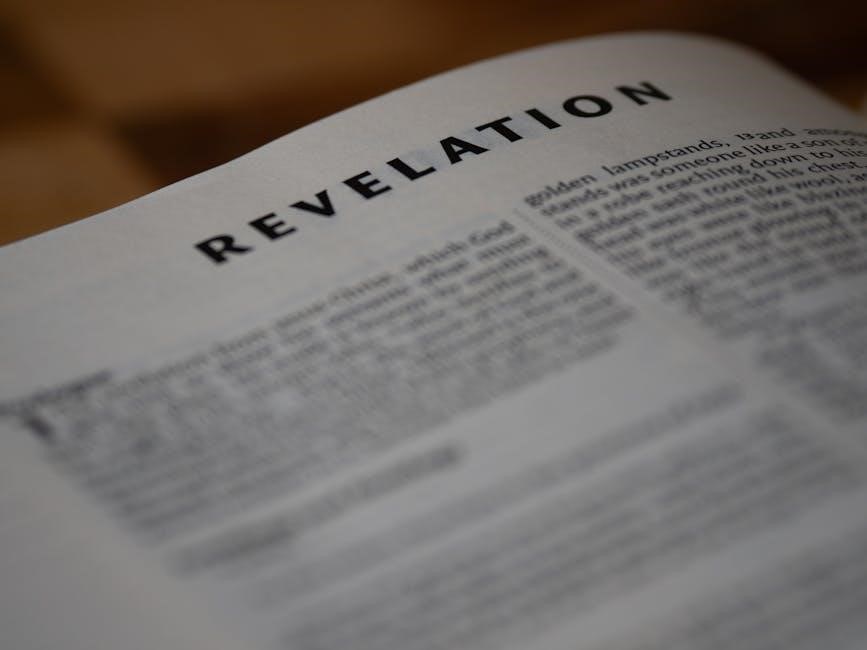
The Intersection of Jesus and John Wayne
“Jesus and John Wayne” explores how American evangelicals blended the divine authority of Jesus with the rugged masculinity of John Wayne. This cultural fusion reflects a desire to merge religious faith with ideals of strength, leadership, and moral certainty. The book examines how the imagery of Jesus as a powerful, authoritative figure aligns with the “John Wayne era” of American identity. This intersection highlights the ways evangelical culture has embraced a vision of power, redemption, and dominance, shaping both religious and political discourse in the U.S.
5.1 How Evangelicals Blended Religious and Cultural Icons
Evangelicals in America uniquely merged the sacred figure of Jesus with the cultural icon John Wayne, creating a synthesis of divine authority and rugged masculinity. This blending reflected a desire to align spiritual values with American identity, emphasizing strength, leadership, and moral clarity. The fusion drew from Jesus’ role as a powerful, redemptive figure and Wayne’s embodiment of self-reliance and heroism. By combining these icons, evangelicals crafted a narrative that resonated with both religious and national ideals, reinforcing notions of moral righteousness and cultural dominance. This synthesis became a cornerstone of evangelical identity, shaping perceptions of faith, gender, and patriotism in modern America.
5.2 The Role of Media in Shaping Evangelical Identity
Media played a pivotal role in shaping evangelical identity by popularizing a fusion of faith and culture. Films, television, and Christian entertainment often depicted idealized versions of masculinity and morality, aligning with the values of both Jesus and John Wayne. Radio broadcasts, bestselling books, and televangelism further amplified these narratives, creating a cultural ecosystem where religious and nationalistic ideals intertwined. Media not only disseminated these ideas but also helped evangelicals see themselves as defenders of tradition and moral authority. Through these platforms, the image of the “Christian warrior” gained traction, influencing how evangelicals viewed leadership, family, and community. Media thus became a powerful tool in fostering a distinct evangelical identity rooted in both faith and cultural symbolism.
5.3 The Symbolism of Power and Redemption
In Jesus and John Wayne, the symbolism of power and redemption emerges as a central theme, bridging the figures of Jesus and John Wayne. Both are portrayed as saviors—Jesus through divine sacrifice and Wayne through rugged, masculine heroism. This duality reinforces the idea of redemption as both spiritual and cultural. Evangelicals often embrace a narrative where power is wielded to protect and restore moral order, reflecting Jesus’ triumph over sin and Wayne’s triumph over chaos. This symbolism inspires loyalty and action, shaping evangelical identity around themes of strength, authority, and the defense of tradition. The book critiques how this blend of religious and cultural icons has influenced evangelical attitudes toward leadership, justice, and societal roles.

Key Themes in “Jesus and John Wayne”
The book explores themes like toxic masculinity, cultural dominance, and the intertwining of faith with nationalism, revealing how evangelicalism has been shaped by power and identity.
6.1 The Corruption of Faith
The book examines how evangelical faith became entangled with cultural and political power, leading to a distortion of Jesus’ teachings. This corruption is tied to the rise of Christian nationalism, where faith is weaponized to justify dominance rather than humility. Du Mez argues that the blending of Christianity with masculine ideals and patriotic values eroded the moral accountability central to Jesus’ message. The pursuit of power and control replaced selflessness and compassion, creating a faith that often prioritizes cultural superiority over spiritual integrity. This theme highlights the dangers of conflating religious identity with worldly authority, revealing how such corruption undermines the essence of Christianity.
6.2 The Fracturing of a Nation
The book explores how the blending of evangelical identity with cultural and political ideologies contributed to the division of American society. By aligning faith with partisan politics and nationalist ideals, evangelicals often perpetuated exclusionary practices. This ideological entrenchment deepened racial, political, and cultural divides, fostering animosity toward perceived enemies of the faith. The “us versus them” mentality, amplified by the John Wayne-esque rugged individualism, further polarized communities. Du Mez argues that this fracturing reflects a broader failure to uphold the inclusive and reconciliatory teachings of Jesus, as evangelicalism became a tool for maintaining power rather than promoting unity and justice.
6.3 The Role of Gender in Evangelicalism
Gender roles play a significant part in shaping evangelical identity, often reinforcing traditional notions of masculinity and femininity; The ideal of the “Christian warrior,” influenced by John Wayne’s rugged individualism, emphasizes male strength, leadership, and dominance. Women, conversely, are frequently encouraged to embody submission and nurturing roles. This complementarian view of gender has been central to evangelical teachings, often justified through biblical interpretations. The book highlights how these gendered ideals have not only influenced personal relationships but also broader cultural and political dynamics, contributing to divisions within society. By tying faith to rigid gender roles, evangelicals have often limited women’s agency and reinforced hierarchical structures, reflecting a broader struggle with equality and inclusivity.
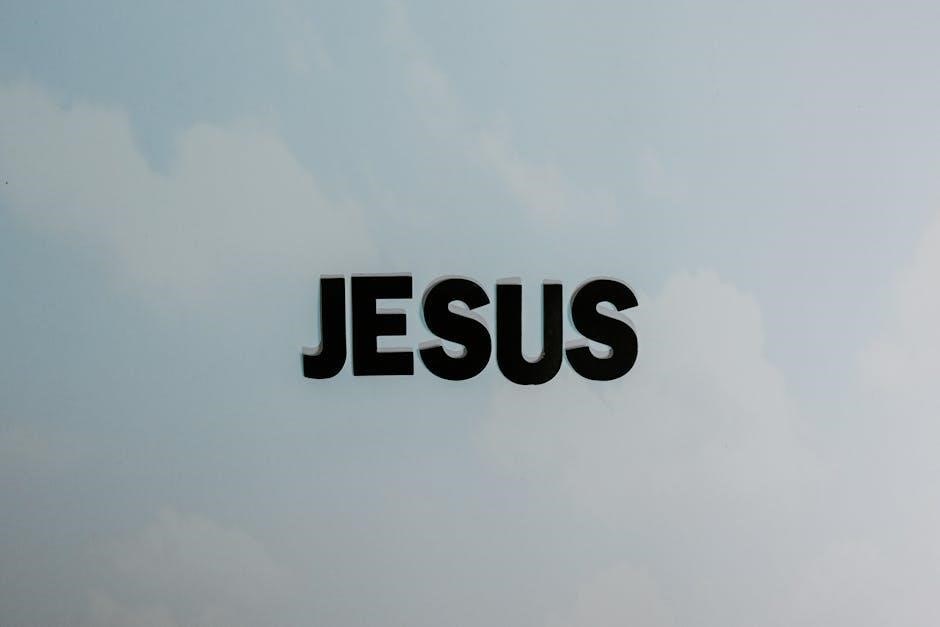
The Impact of the Book
Kristin Kobes Du Mez’s work has sparked significant debate, challenging evangelicalism’s cultural and political ties. It has initiated crucial conversations about faith, identity, and power in America;
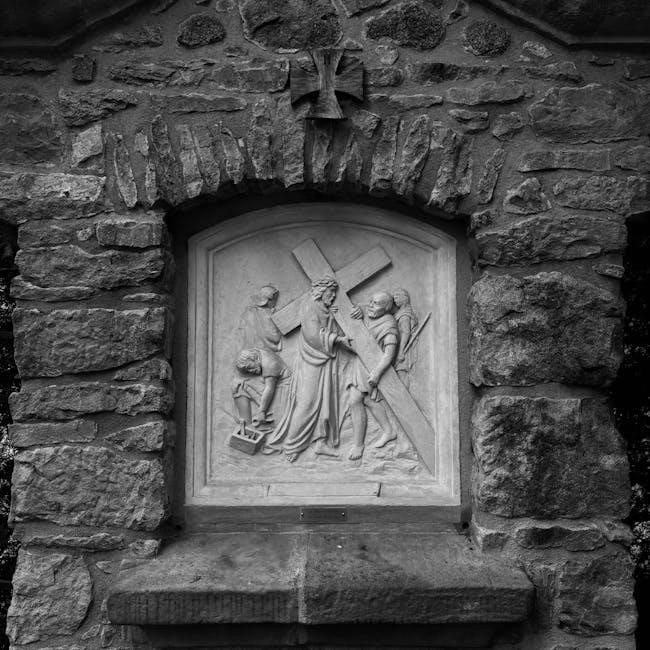
7.1 Reactions from the Evangelical Community
The book has received mixed reactions from evangelicals, with some praising its critique of toxic masculinity and political ties, while others accuse Du Mez of misrepresenting their faith. Critics argue that the book oversimplifies evangelicalism’s diversity and dismisses its positive aspects. Supporters, however, appreciate its bold examination of how cultural ideals like John Wayne’s masculinity have influenced evangelical identity. The book has sparked heated debates within churches and online communities, highlighting deep divisions over issues like gender roles, political engagement, and the interpretation of Christianity. This polarization reflects broader tensions within American evangelicalism, making the book a lightning rod for both praise and criticism.
7.2 The Broader Cultural and Political Implications

Kristin Du Mez’s book has far-reaching implications beyond evangelical circles, challenging how religion, culture, and politics intersect in America. By examining the fusion of evangelical identity with ideals like masculinity and authority, the book sheds light on how these values have shaped national discourse. The portrayal of Jesus as a warrior figure aligns with broader cultural narratives of power and dominance, influencing everything from foreign policy to gender roles. The book critiques how evangelicalism has often supported authoritarian leadership, reinforcing divides in American society. Its analysis resonates widely, offering insights into the cultural underpinnings of political polarization and the enduring impact of religious ideologies on public life.
7.3 The Role of “Jesus and John Wayne” in Modern Discourse
Kristin Du Mez’s Jesus and John Wayne has become a pivotal work in modern discourse, challenging stereotypes and sparking conversations about religion, culture, and power. The book’s exploration of evangelical identity and its cultural influences has resonated widely, particularly in discussions about masculinity, authority, and faith. By bridging historical analysis with contemporary issues, it encourages readers to reflect on how cultural values shape religious belief. The book’s insights into the blending of faith and nationalism have made it a key text in understanding American evangelicalism’s role in today’s polarized landscape. Its impact lies in its ability to provoke critical thinking about identity, power, and the intersection of faith with cultural ideals.
Jesus and John Wayne masterfully explores the blending of faith and cultural ideals, revealing how evangelical identity has shaped and been shaped by American values. By examining the intersections of religion, masculinity, and politics, the book challenges readers to reflect on the complexities of power and belief. Its thought-provoking analysis offers a compelling call to reconsider the future of evangelicalism in a rapidly changing world, emphasizing the need for self-reflection and understanding in navigating the role of faith in modern society.
8.1 Final Thoughts on the Book’s Message
Jesus and John Wayne leaves readers with a profound critique of how evangelicalism has often conflated faith with cultural ideals of masculinity and power. The book challenges the notion that Christianity must align with dominance and control, instead advocating for a more humble and compassionate understanding of faith. By tracing the historical and cultural threads that tied evangelical identity to figures like John Wayne, Du Mez reveals the dangers of idolizing earthly power over spiritual principles. The book’s message is both a call to introspection and a warning about the consequences of blending religious authority with cultural dominance. It invites readers to reimagine Christianity’s role in American life, urging a return to values of love, justice, and humility.
8.2 The Future of Evangelicalism in America
The future of evangelicalism in America remains uncertain, as the movement grapples with internal divisions and external critiques. Jesus and John Wayne highlights the need for evangelicals to reckon with the cultural and political entanglements that have shaped their identity. Many younger evangelicals are seeking a more inclusive and compassionate form of faith, distancing themselves from the toxic blend of nationalism and masculinity. However, others may double down on familiar ideologies, deepening the divide. The book serves as a catalyst for necessary conversations about the direction of evangelicalism, urging a return to humility and a rejection of power-driven narratives. The path forward will depend on whether the movement can redefine itself in ways that resonate with both its historical roots and the demands of a changing society.
8.3 The Legacy of “Jesus and John Wayne”
“Jesus and John Wayne” has left an indelible mark on the discourse surrounding evangelicalism, offering a critical examination of its cultural and political underpinnings. By tracing the fusion of faith and masculinity, the book challenges readers to confront the ways in which American identity has been intertwined with religious ideology. Its legacy lies in its ability to spark uncomfortable yet necessary conversations about power, gender, and the politicization of faith. While some have praised its incisive critique, others have criticized its conclusions, ensuring its place as a polarizing yet thought-provoking work. Ultimately, the book stands as a significant contribution to understanding the complexities of evangelicalism in modern America.
